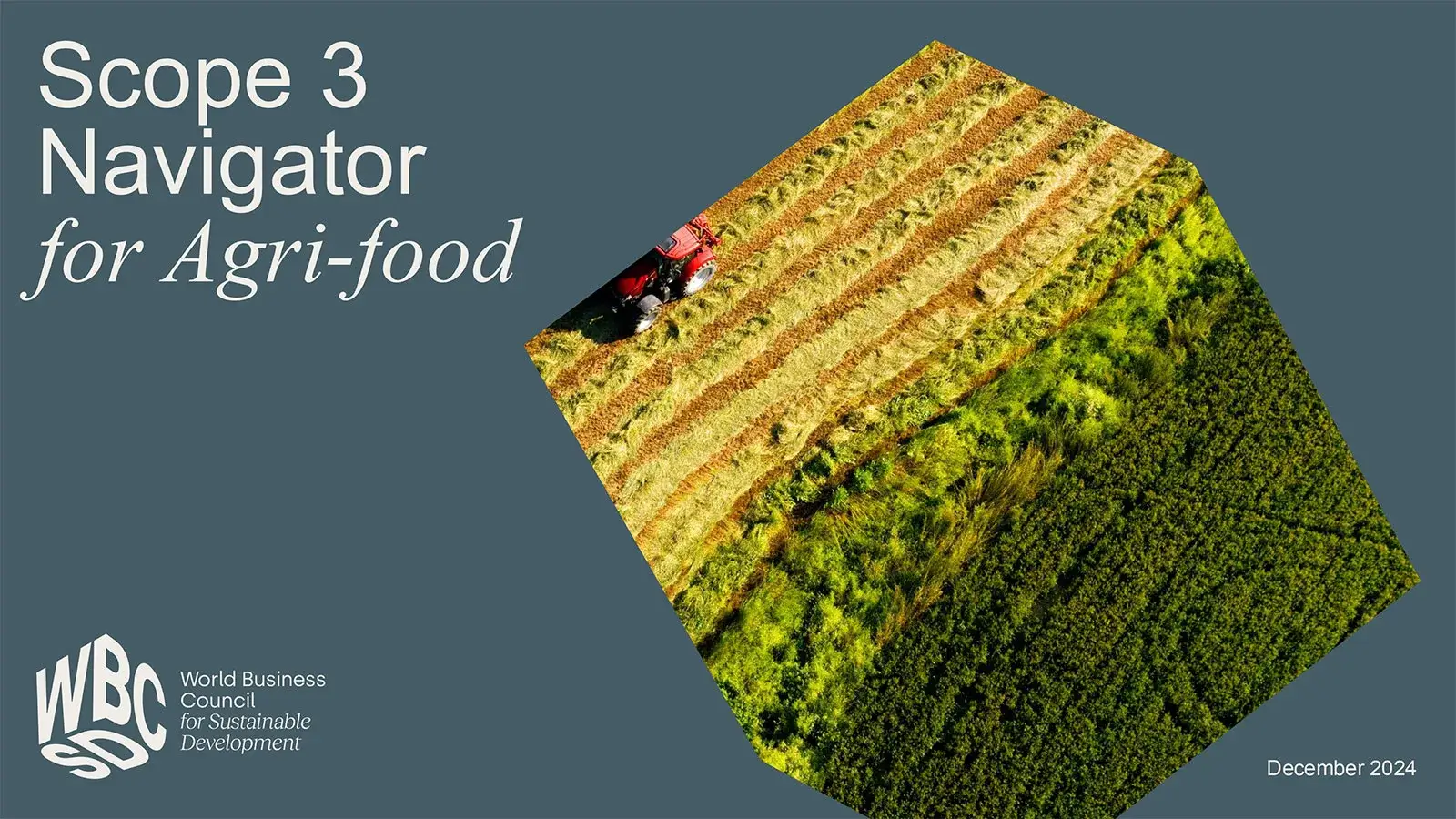Scope 3 Navigator for Agriculture and Food
Published: December 3, 2024

Agrifood value chains must address barriers to scope 3 emissions reductions and removals associated with land use. This is essential to accelerate value chain interventions and the flow of much-needed investment. To do so, agri-food businesses need to put into practice and account for scalable agricultural practice change.
To ensure that carbon accounting standards and frameworks are robust and pragmatic, and that they align with clear adoption pathways for business, we publish two complementing Navigator documents:
- Navigator deep dives: This document provides deep dives on key scope 3 topics for sustainability practitioners to enable scope 3 action – the business case, key frameworks and standards, focus areas for action and key enablers.
- Navigator slides: The purpose of this document is to engage the C-suite on the importance of scope 3 emissions for agri-food businesses. It covers the reasons why scope 3 is critical for business, the impact of key standards and regulations, the need for value chain collaboration and the enablers to drive scope 3 action at scale.
Together they contribute to a common understanding across different stakeholders, functions and value chain partners, showing agriculture and food companies in the scope 3 ecosystem approaches they can take to act.
These publications are part of a broader suite of resources found in the WBCSD’s Agriculture & Food Scope 3 toolkit.